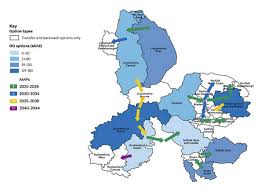
The Importance of Addressing Wildfires in Greece
Wildfires in Greece have become an increasingly significant concern, particularly during the summer months when dry conditions and intense heat prevail. The ramifications of these wildfires are profound, affecting not only the environment but also local communities, economy, and wildlife. With climate change exacerbating the frequency and severity of these blazes, understanding the current situation is vital for prevention and response efforts.
Recent Events and Statistics
In the summer of 2023, Greece faced one of its worst wildfire seasons yet, with over 1,000 wildfires reported across the country. According to the Greek Ministry of Rural Development and Food, approximately 15,000 hectares of forest and agricultural land were devastated. The most impacted areas included regions such as Peloponnese, Evia, and Thessaloniki, where thousands of people were evacuated to ensure their safety.
The fires posed significant challenges for firefighters, as many blazes were intensified by strong winds and high temperatures that reached over 40 degrees Celsius. Firefighting resources, both local and international, were deployed, with assistance from several European countries, showcasing the global collaboration in combating wildfires.
The Human and Ecological Impact
The human cost of the wildfires has been staggering, with reports indicating multiple casualties and injuries among both local residents and firefighters. Additionally, thousands of homes and businesses were destroyed, leading to extensive displacement and economic hardship for many families.
The ecological impact also cannot be overlooked; habitat loss for wildlife is alarming, with many species at risk due to the destruction of their natural environments. Reforestation and conservation efforts will be critical in the coming years to restore the landscape and support struggling ecosystems.
Looking Ahead: Recovery and Prevention Efforts
In the aftermath of this catastrophic wildfire season, the Greek government is prioritising recovery efforts. Plans for rebuilding homes, providing financial assistance, and enhancing fire prevention strategies are currently in progress. Investing in infrastructure improvements, such as firebreaks and better access for emergency services, will be crucial in mitigating the impact of future wildfires.
Furthermore, raising public awareness regarding personal safety and preparation for wildfires is essential. Communities are being encouraged to develop emergency plans and participate in local training sessions to increase resilience against future natural disasters.
Conclusion
As wildfires continue to be a pressing issue in Greece, understanding their causes, impacts, and the ongoing responses is vital for both the environment and the local populace. The challenges posed by these natural disasters underscore the need for sustained efforts in climate change adaptation, effective management strategies, and community engagement to safeguard lives and preserve the unique landscapes of Greece.
You may also like

Marie Hobinger: A New Force in Environmental Activism

Understanding Asian Giant Hornets: A Growing Concern
